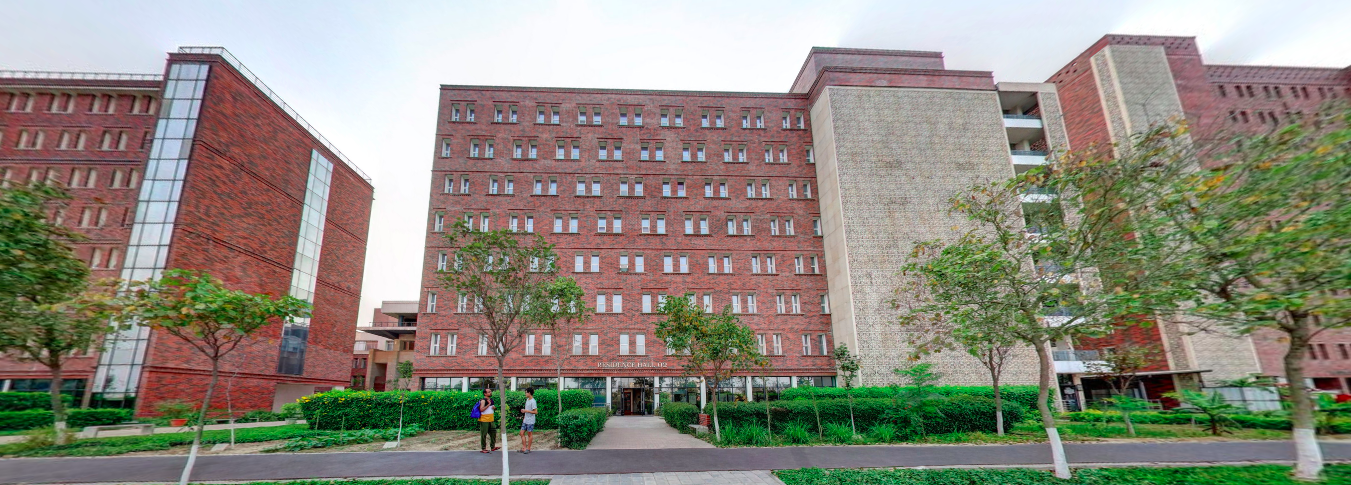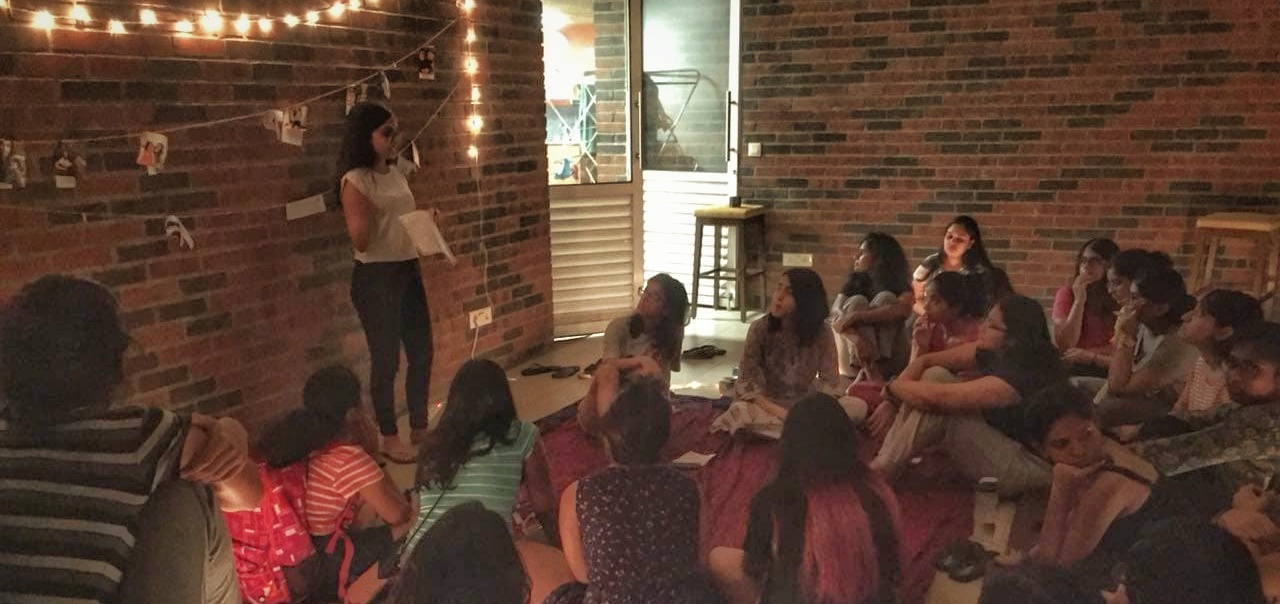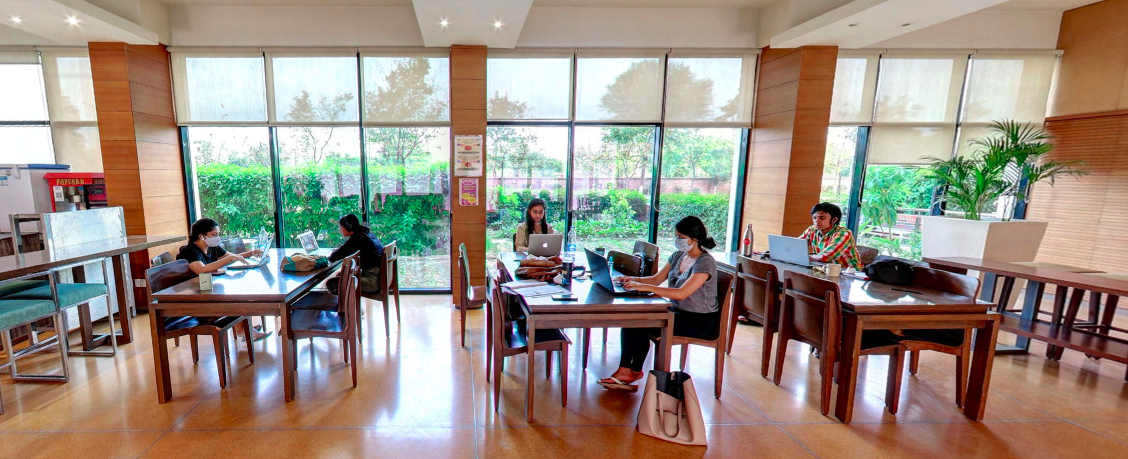Housing Facilities
Room and Roommate Assignment
A. Room Allocation
- At the beginning of the academic year, room allotment is made on a twin-sharing basis for the entire academic year as per the building-level assignments approved by the University.
- For emergency preparedness, the University needs to know the room assignment of each student living in campus housing. Students therefore may not change rooms or roommates without official authorisation.
Note: Students who are not enrolled in any academic courses will not be allotted a room within the University housing.
B. Disability related Accommodations
- Students are expected to self-identify any specific disability-related needs and raise their requests via email with the Office of Learning Support (OLS) at ols@ashoka.edu.in to avail housing accommodations prior to the start of the academic year. Incoming students may reach out to the Office of Admissions first while returning students (who have a newly-diagnosed condition or a change to a previously documented condition) can register directly with OLS.
- Students are required to provide comprehensive professional documentation of their disability to the Office of Learning Support. OLS will then assess and recommend housing accommodations (such as location, lights, washroom accessibility, ergonomic furniture etc.) to the Residence Life Office.
- The student must be willing to live in any Residence Hall and/or room that is determined to meet their disability/medical need by the University.
- All such accommodations will be made on a space-available basis and only for the concerned individual – not for a group.
C. Room Reassignment
- Both occupants may request a room change for non-functioning room facilities or any other difficult room experience related to the infrastructure.
- In all such situations, the concerned students should meet with their respective Warden for appropriate assistance.
- Once the Warden confirms the validity of the request made, they may recommend a room change for the occupants in consultation with the senior member(s) of the Residence Life Office.
- If the room change request is approved, the Residence Life Office will make an offer regarding the feasible arrangement. After the offer is made, the student will have 24 hours to decline or accept the offer. If the offer is accepted, the students will have 48 hours to move into the newly assigned room and return the keys for the previous assignment. If the students do not respond to the offer within the stipulated duration of 24 hours, the offer will be withdrawn by the Residence Life Office.
- Reassignments for special circumstances, such as a recommendation from the Office of Learning Support (OLS), serious facility-related problems that can be a potential life hazard etc., will be given the highest priority.
Important: Residence Life Office reserves the right to reassign any room if deemed necessary during the academic year.
D. Resident Rights
As a stressful living environment can affect a student’s academic performance and emotional well-being, Ashoka University is committed to ensuring that certain basic rights and duties are binding upon all students. These are –
1. The right to privacy
2. The right to free and uninhibited access to the allotted room at all times
3. The right to have the roommate and/or peers respect personal belongings
4. The right to study and sleep peacefully in the allotted room, free from any undue interference or hindrance from the roommate and/or peers
5. The right to be asked/consulted with and to grant/deny permission for having peers invited over in the allotted room
6. The right to a hygienic and clean living environment
7. The right to free and uninhibited access to common spaces at all times
8. The right to be treated as equal without fear of harassment, intimidation, bullying, and physical and/or emotional harm
9. The right to discuss and resolve disagreements or conflicts in a respectful, civil, and open manner
Any violation of the above-stated rights can be reported to the concerned authorities for further action.
E. Roommate Allocation
Roommates are decided by the University with the help of relevant information provided by the students themselves through the Roommate Matching Form for incoming students. Returning students are allowed to choose their preferred roommates by indicating the same in the Roommate Preference Form shared by the Residence Life Office at the beginning of each academic year. All students are expected to room with students from within their own batch.
Residential Access
A. Keys
- Students will be issued keys to their allotted room including keys for the wardrobe and desk drawers at the beginning of the academic year. They will be responsible for keeping their keys safe as the University is not liable for losses/damages sustained to personal belongings because they lend their keys to another individual(s).
- Possession and/or misuse of keys belonging to other students is strictly prohibited and those found in violation will be liable for disciplinary action.
- Duplication of the keys and/or use of duplicate keys for unauthorised access is a punishable offense and will be reported to the concerned committee.
- If the key(s) is lost, a replacement key may be issued by the Residence Life Office subject to the availability of the concerned personnel. Any costs incurred for the replacement key will have to be borne by the student.
- Replacing, exchanging, or otherwise tampering with room/wardrobe door handles and locks is prohibited. If the lock is non-functional, it is expected that the student will reach out to the respective Warden for assistance.
- Students are required to entrust the Warden with any unattended keys that they chance upon anywhere on campus.
- Students are not allowed to leave their keys in their room or entrust their keys with their peers at the end of the academic year. They are expected to
complete the check-out process, including returning the keys, themselves.
B. ID Card
- Incoming students are issued University ID Cards (HID enabled) by the Residence Life Office during the check-in process.
- Possession and/or misuse of ID cards belonging to other students is strictly prohibited and those found in violation will be liable for disciplinary action.
- If the ID card is lost, the student should immediately alert the Residence Life
Office so that the card can be deactivated to prevent any misuse. A replacement will be issued subject to processing time. The cost incurred for
replacing the ID card will have to be borne by the student.
- Students are required to entrust the Warden with any unattended University ID cards that they chance upon anywhere on campus.
- Students must carry their University issued ID cards at all times and produce it on demand by the security staff or any other authorised personnel. Failure to produce the ID card on demand may be treated as an act of misconduct if satisfactory reasons are not provided upon further enquiry.
- During the Exit Clearance process from the University, due to withdrawal from/completion of their academic programme, the students must surrender their ID card back to the Residence Life Office.
Residence Support
The Residence Life Office is managed through the efforts of a robust team of staff. The descriptions of their position are as below:
The Residence Life Office is led and overseen by the Associate Director who is responsible for maintaining discipline alongside, providing pastoral care and support within the Halls of Residence. The efforts of the Associate Director are supported by the dynamic programme and executive teams. The programme team comprises of the Deputy Director and Assistants. The executive team consists of the Senior Wardens and Wardens. Together, they are all responsible for providing an inclusive, safe, positive, and comfortable residential experience to students.
Each residential building is staffed by at least one executive team member from the Residence Life Office. Their primary role is to manage the student check-in and check-out process, respond to emergencies and disciplinar infractions, manage building infrastructure, coordinate in-hall housekeeping and maintenance staff, and conduct business necessary to the well-being of the student community. Concerns about Residence Life policies, sources of conflict in the hall, conduct, infractions or building infrastructure should be reported first to the Warden, before reaching out to the Associate Director.









